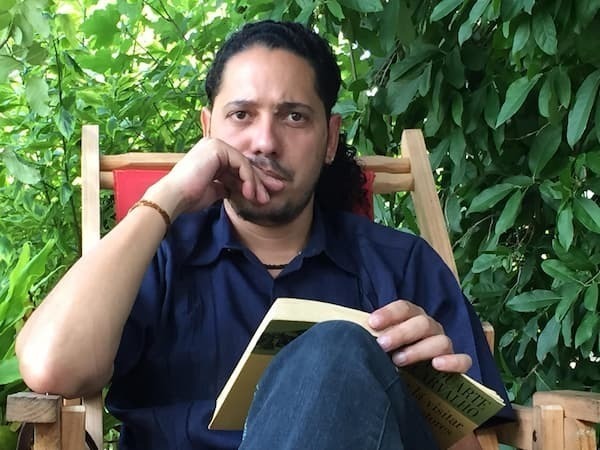
Please join us on Tuesday, April 23rd, in the Conference room at the Department of Romance Languages & Literatures for a conversation with the internationally acclaimed Angolan writer Ondjaki, featuring a viewing of his short film “The Kitchen.”
ABOUT THE PRESENTER Ondjaki, pseudonym of Ndalu de Almeida, was born in 1977, in post-colonial war Luanda, Angola. He witnessed the changes the country endured, the civil war that followed colonial war, and the most recent changes after a president who remained in power for eighteen years left the government. Ondjaki has lived in Lisbon, Portugal where he graduated in Sociology before pursuing his PhD in African Studies. His experience living in Angola, in Portugal and in Brazil, provides him a unique perspective of the historical, social, and cultural challenges each country has, but also a particular interest in fictionalizing and reflecting on the history and the people of his native country. This motivation is explicit in his books. His work has been translated into French, Spanish, Italian, German, English, Serbian, Kiswahili, Chinese, and Swiss, among other languages, and he has received several awards for his written works, including Short Story A.P.E. (Portugal, 2007); Grinzane Cavour Prize for Best Young Writer (Africa, 2008), Jabuti Prize (Brazil, 2010), José Saramago Award (Portugal, 2013), and Prix Littérature-Monde from the St. Malo World Literature Festival (France, 2016).
ABOUT THE FILM Ondjaki adapted the film “The Kitchen” from an unpublished short story he had long imagined as a movie. He wanted to make a film that talked about Angola, even if that meant talking about the war and the emotional difficulties of anyone who has lived close to a war: a film for and about women, about children, and about Angola’s past and future.
FILM SYNOPSIS On a rainy night, a woman reflects on her past, present and future. Among memories of family, husband and war, there is a reflection on the condition of the African woman. It is also a symbolic look at life during and after the days of war. What memories can’t we erase? What voices are repeated around guilt, pain, and unrest? And how many dawns are in a night?
Event sponsored by the Institute for Scholarship in the Liberal Arts, Teaching Beyond the Classroom grants, and the Department of Romance Languages and Literatures.